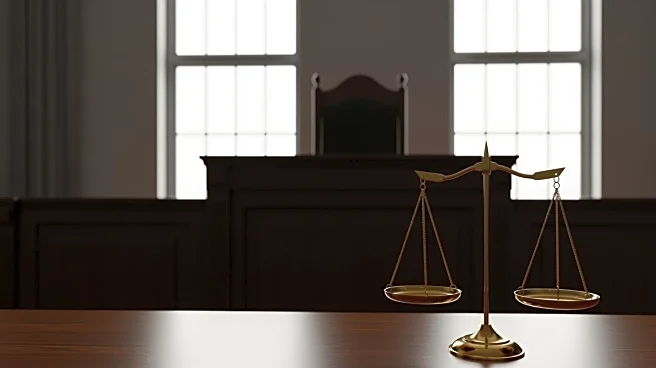What's Happening?
Senate Democrats have introduced a proposal to end the ongoing government shutdown by extending Affordable Care Act (ACA) subsidies for one year. This proposal comes after a week of internal discussions
among Democrats about how long to hold out for their policy goals. Senate Minority Leader Charles E. Schumer emphasized that the proposal is a straightforward compromise, aiming to reopen the government while providing certainty and financial relief to working families currently shopping for health care. The proposal also includes the formation of a bipartisan committee to explore long-term revisions to the subsidies. However, the proposal faces opposition from Senate Republicans, who argue that the ACA subsidies should expire unless the program is overhauled to address issues like fraud and restrictions on abortion coverage.
Why It's Important?
The proposal is significant as it attempts to resolve the longest government shutdown in U.S. history, which has affected federal workers and services. By extending ACA subsidies, the proposal seeks to provide immediate relief to families facing rising health care premiums. However, the political divide over health care policy remains a major hurdle. The proposal's success could influence future negotiations on health care reforms and government funding. If accepted, it could set a precedent for bipartisan cooperation on contentious issues. Conversely, failure to reach an agreement could prolong the shutdown, exacerbating its impact on federal operations and public services.
What's Next?
The proposal's fate depends on negotiations between Senate Democrats and Republicans. Senate Majority Leader John Thune has dismissed the proposal, insisting that negotiations can only occur after the government reopens. House Speaker Mike Johnson has not committed to a vote on the subsidies, adding uncertainty to the proposal's future. President Trump has urged Senate Republicans to end the shutdown, suggesting the abolition of the Senate filibuster if necessary. The outcome of these negotiations will determine whether the government reopens and how health care subsidies are addressed in the future.









